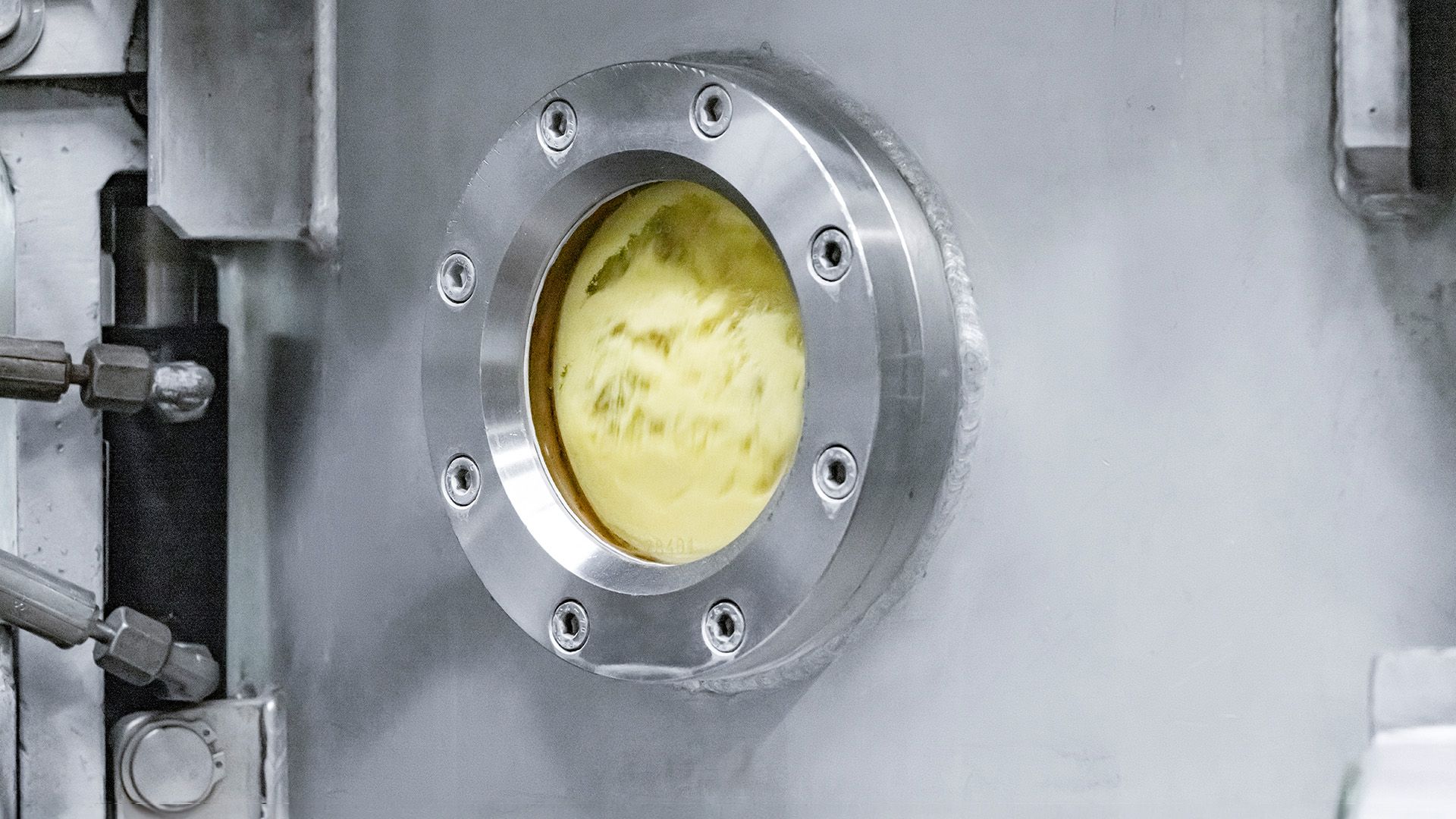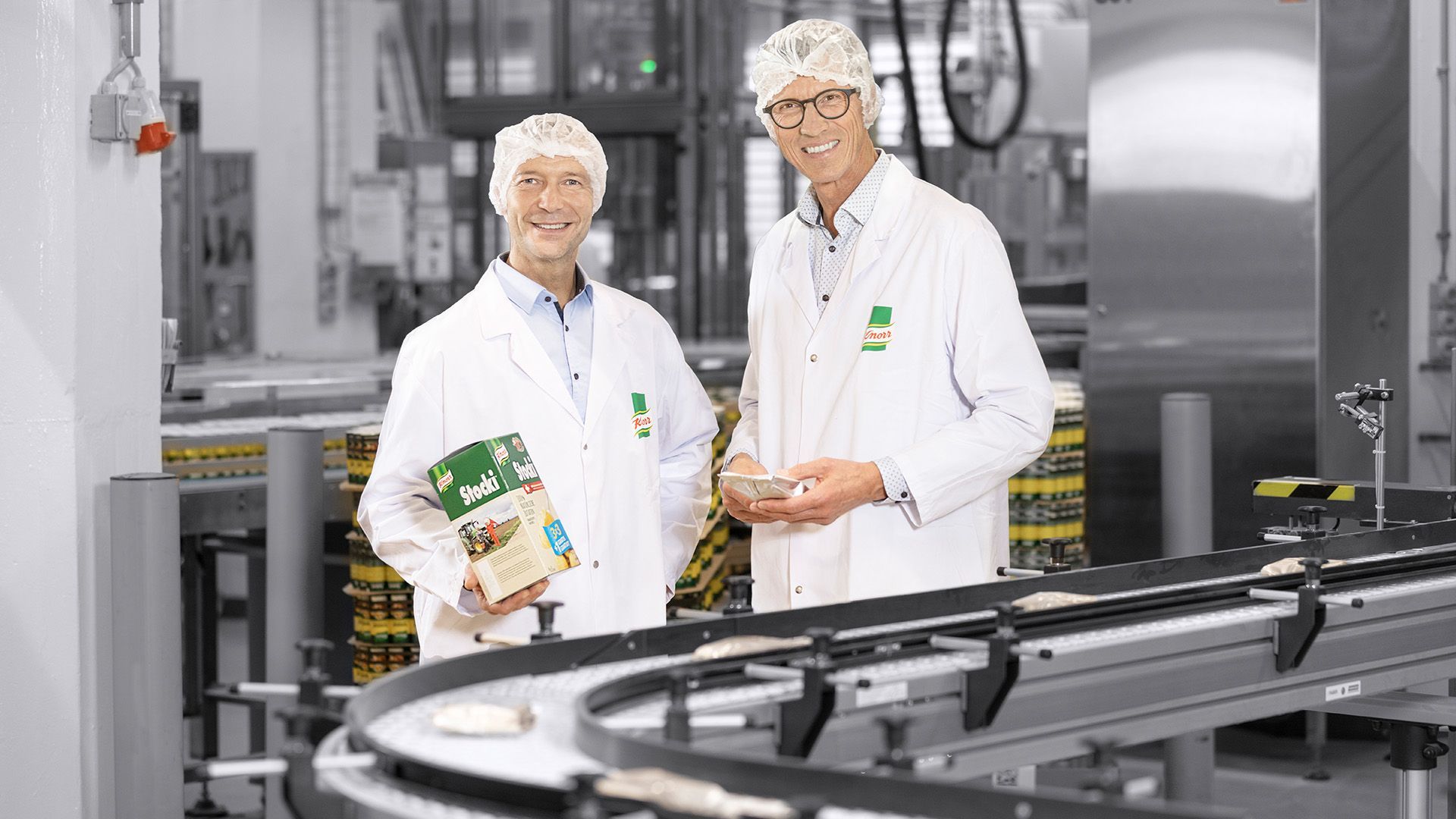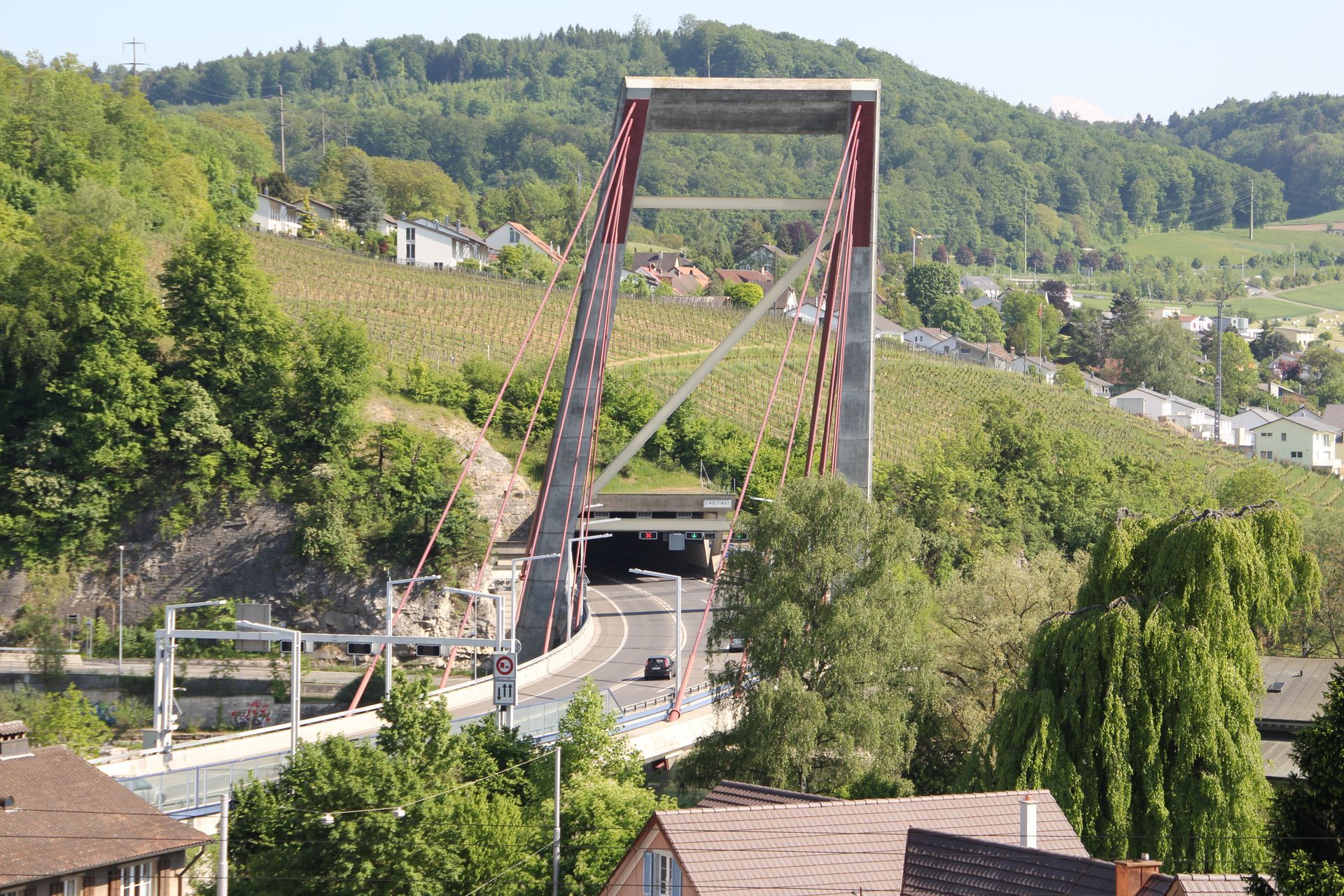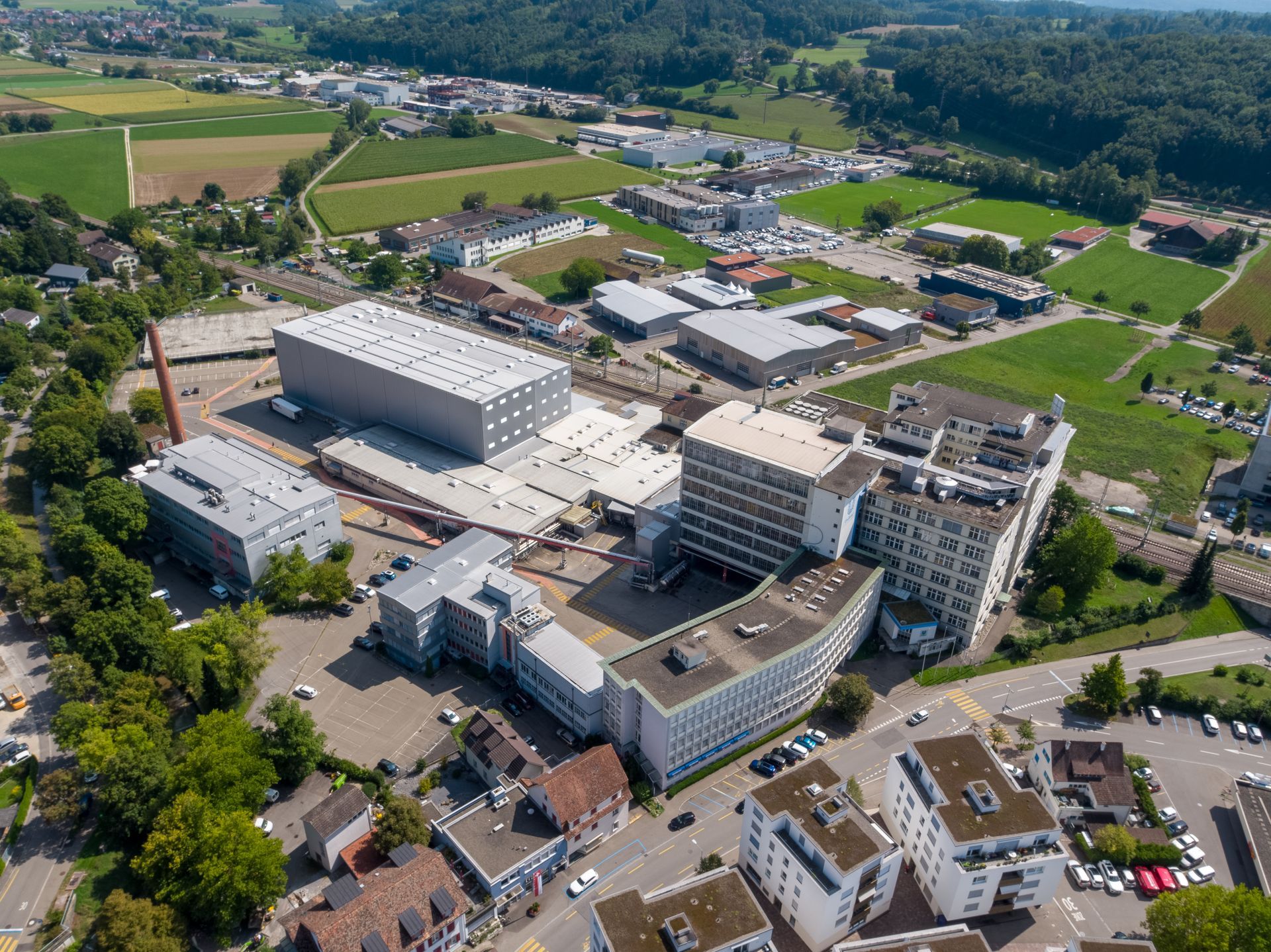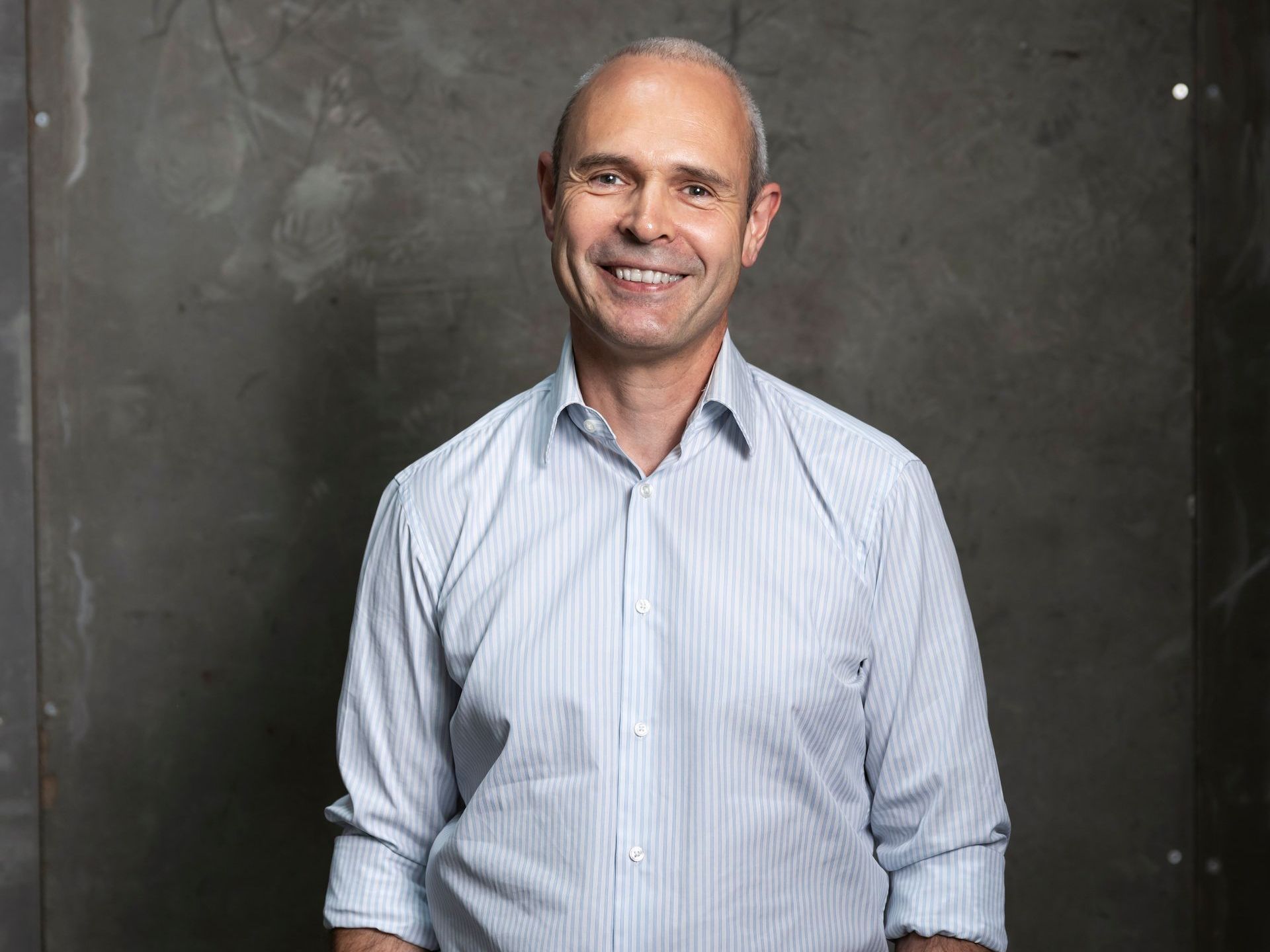We can't go on eating the way we do now. The food system needs a change. The Schaffhausen-based food specialist Unilever is taking an active role in this reorientation with various approaches.
"The food system is out of kilter," explains Bernhard Schober, Managing Director of Unilever Switzerland, at the start of the interview. Around a quarter of the world's greenhouse gases come from food production, water consumption for cultivation and processing is often very high and a third of food ends up as food waste. At the same time, part of the world's population suffers from malnutrition, while obesity contributes to rising health costs elsewhere. And then there are the increasing climatic changes that affect harvests. Food producers such as Unilever and Pronatec are now aware that they have a responsibility in this food system and want to play an active role in improving the situation. Possible solutions include sustainable supply chains, organic production, plant-based products or healthier food thanks to lower salt or sugar content or a higher fiber content. "Every company must find a way to make the challenges of production, processing and consumption more sustainable. Unilever has made an official commitment to sustainability," concludes Schober. And with the production site in Thayngen, Unilever is on this path.
«We want to be economically, socially and ecologically sustainable.»
Bernhard Schober, Managing Director of Unilever Switzerland
Unilever Thayngen – from local to future
"As a food producer, we have a responsibility towards our consumers and the environment. And this responsibility flows into our site development," explains Bernhard Schober. He has been Managing Director of Unilever Switzerland with around 300 employees since March 2023. In addition to the company headquarters in Schaffhausen, this also includes the production plant in Thayngen. The former 'Knorri' production plant is still the heart of Unilever Switzerland. Pouch soups were invented here, bouillons and Stocki are produced here and flavorings have been made here for 70 years. Until ten years ago, production was geared towards the Swiss and European markets. "We have adapted this strategy in recent years," explains Daniel Lötscher, who has been plant manager in Thayngen for a year. "Today, our production is primarily geared towards the Swiss market." He is convinced that Unilever has thus also set the course for the future.
Strategy for sustainability
"We want our production to be economically, socially and ecologically sustainable," says Bernhard Schober, explaining the repositioning. With the 'local for local' concept, Unilever has therefore been pursuing a strategy in Thayngen since 2019 that will strengthen the site in the long term. For Unilever, 'local for local' means producing as many Swiss raw materials as possible in Switzerland and products that are specifically geared towards this market. This also includes the Swiss cross on the packaging. "This 'Swissness' means that 80 percent of our raw materials come from Switzerland. And must meet our quality standards," adds Daniel Lötscher. This is why Unilever maintains contact with the producers of the potatoes from western Switzerland that end up in Stocki.
For the Thayngen site, Unilever also associates 'local for local' with regular exchanges with the local authorities and close contact with the economic development department of the canton of Schaffhausen. "Whenever possible, we also take local businesses into account when placing orders," explains Daniel Lötscher. Unilever's commitment to the region also means that it is involved in training. And Schober and Lötscher underline their commitment to the region once again: they live in the region with their families.
The 'local for local' strategy is part of the life insurance for production - and yet it is not a sure-fire success. Bernhard Schober concludes: "The ideological component alone is not enough. We have to achieve the same economic key figures with our plant as other locations. But all the signs indicate that we will achieve this."
Second strategic pillar: the Swiss Nutrition Manufacturing Hub
In parallel to the 'local for local' approach, Schober and Lötscher are focusing on another strategic pillar with the aim of developing a strong second pillar for the Thayngen site. "Our aim is to establish a Swiss Nutrition Manufacturing Hub in Thayngen. Here on our production site, we offer space to companies that deal with new eating habits and food trends," says Daniel Lötscher, explaining the strategy. On the one hand, know-how is pooled here and a network is created with companies with the same focus; on the other hand, the companies can use the capacities freed up at Unilever. The facility in Thayngen offers free space for scaling projects as well as a production infrastructure with filling systems, steam, waste water disposal and so on. "Over the past two years, we have been working with the economic development agency to position and align the Swiss Nutrition Manufacturing Hub." adds Daniel Lötscher. "Our aim at the Nutrition Hub is to work on the challenges facing the food industry. Together with smaller food companies that are new to the area, we want to examine possible solutions, scale them up and learn from them," says the plant manager. The new Nutrition Hub has met with interest: The first companies are in discussions with Unilever. Lötscher expects the first company to settle here as early as next year. The offer is very interesting: where else in this industry is there a place where an experienced producer opens the doors to its expertise in order to positively influence the future of the food industry together with new producers? In Thayngen, a hub with an application-oriented ecosystem can emerge from which innovation and cooperation can grow. As an opportunity for the entire region and especially for production in Switzerland. And above all for health-conscious consumers.
